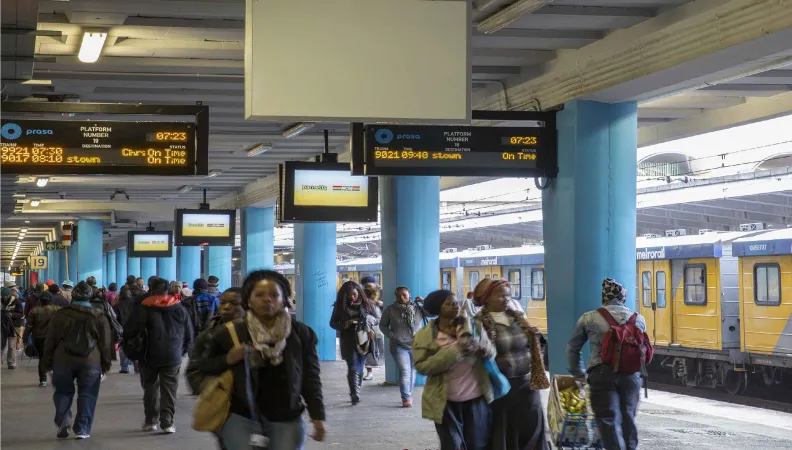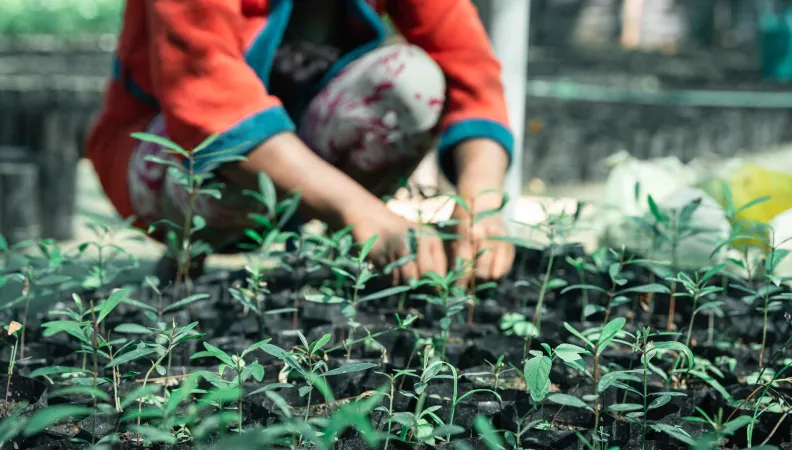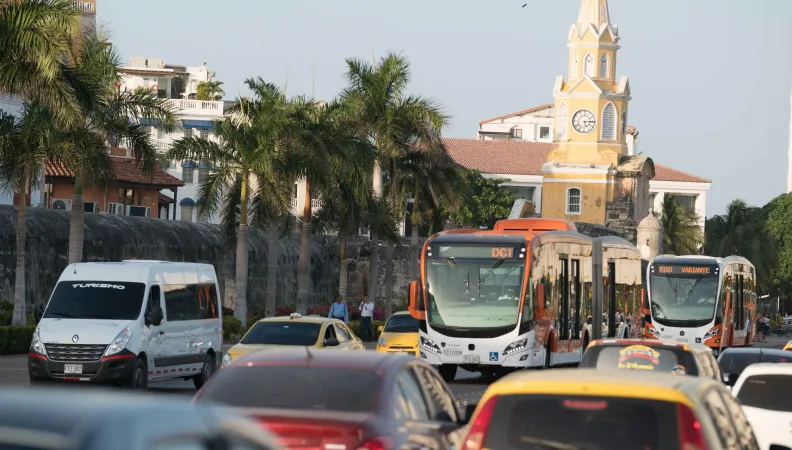 Legal notice EU (project) How do spatial variation in inequality and quality of institutions interact to explain variation in subjective wellbeing in South Africa? The EU-AFD Research Facility on Inequalities will seek to answer this question in collaboration with the University of Cape Town (UCT).
Legal notice EU (project) How do spatial variation in inequality and quality of institutions interact to explain variation in subjective wellbeing in South Africa? The EU-AFD Research Facility on Inequalities will seek to answer this question in collaboration with the University of Cape Town (UCT).
Context
Despite several efforts to promote pro-poor growth, South Africa remains one of the most unequal countries in the world. While the country's colonial history and apartheid are known to have contributed to this inequality level, the nature and dynamics of its impact on society are yet to be fully understood.
Literature suggests that better institutions and lower level of inequality improve subjective wellbeing. However, evidence that examine how the interaction between these two variables explain variation in wellbeing is relatively scarce. This study will thus contribute to a deeper understanding of inequalities in South Africa.
This project is part of the call for research proposals “Advancing the inequality agenda through collaborative research: identifying the priorities for a global Team Europe approach on inequalities”, launched by the Strategic Committee of the Research Facility on Inequalities. It is coordinated by AFD and co-financed by the European Commission, AECID and ENABEL.
Goal
This research project has two main objectives:
- Explore how variations in governance (such as audit outcomes) across South Africa's district municipalities explain the variation in the well-being of individuals.
- Investigate how the interaction between the variation in governance across local government municipalities and inequality among individuals explains variation in subjective well-being.
Method
To investigate the interactions between the quality of institutions and of the governance, the level of spatial inequality and the subjective wellbeing, researchers will use the National Income Dynamics Study (NIDS), a nationally representative survey of individuals across South Africa, which is repeated over five waves between 2008 and 2017. They will also use audit outcomes of local municipalities to proxy for the quality of governance.
Results
You will find below the different research papers related to this project:
In progress
Contact:
- Anda David, Research Officer, AFD
 Legal notice EU (project) How can we measure the efforts made by developing countries to combat the inequalities and the impacts of climate change while taking into account the socioeconomic structure of these countries? The EU-AFD Research Facility on Inequalities will seek to answer this question in collaboration with the Ghanaian research think tank Placefeet.
Legal notice EU (project) How can we measure the efforts made by developing countries to combat the inequalities and the impacts of climate change while taking into account the socioeconomic structure of these countries? The EU-AFD Research Facility on Inequalities will seek to answer this question in collaboration with the Ghanaian research think tank Placefeet.
Contexte
Many of the measures on quantifying progress by countries towards reducing income inequality have focused on indices that measure trends in inequality over time (Gini coefficient for example) and compare countries without considering the differences between their socioeconomic structures.
However, these indices do not paint the complete picture about how countries are performing, especially when compared to one other in achieving Sustainable Development Goals and what policies and investments may be needed to support them. This research project will provide an alternative measurement of income inequality by taking into account the developing countries’ structural or predetermined conditions (mineral assets, type of institutions etc.) in assessing their progress towards reducing inequality and the impacts of climate change.
This project is part of the call for research proposals “Advancing the inequality agenda through collaborative research: identifying the priorities for a global Team Europe approach on inequalities”, launched by the Strategic Committee of the Research Facility on Inequalities. It is coordinated by AFD and co-financed by the European Commission, AECID and ENABEL.
Objectif
The project focuses on the following objectives:
- Firstly, it will compare each country with its potential to reduce income inequalities by measuring the scope for improvement for each country at every year. This will allow a better understanding of the key factors that hinder a country’s effort and performance in reducing inequalities and of the policy and investments that are needed to tackle inequalities more efficiently.
- Secondly, it will investigate how climate – temperature, precipitation and extreme weather events– influence the efficiency of countries in combining inputs to reduce inequality.
- Thirdly, it will look at adaptation or intensification effects across regions, particularly in LDCs and SIDS and will identify the needed scale of investments.
Méthode
Building on a panel database on 145 countries, including countries from Least Developed Countries (LDCs) and Small Island Developing States (SIDS) from 2000-2020, the project will use a stochastic frontier approach, an economic modelling technique, to estimate feasible frontiers for income inequality for each country and year.
Résultats
You will find below the different research papers related to this project :
In progress
 Legal notice EU (project) What has been the redistributive impact of social and fiscal policies in Mexico and Colombia, in the context of the policies implemented during the Covid-19 pandemic? The EU-AFD Research Facility on Inequalities will seek to answer this question in collaboration with the Institute for Inequality Studies (INDESIG).
Legal notice EU (project) What has been the redistributive impact of social and fiscal policies in Mexico and Colombia, in the context of the policies implemented during the Covid-19 pandemic? The EU-AFD Research Facility on Inequalities will seek to answer this question in collaboration with the Institute for Inequality Studies (INDESIG).
Context
While there is mounting evidence that the Covid-19 pandemic has increased socioeconomic inequality, there is still a need to understand the exact channels of impact and what role the policy response has played in different contexts. It is also necessary for governments to be clear about the efficiency of the type of policies they have implemented throughout this period, in terms of the redistributive and/or regressive effect both from an inequality and poverty perspective. Indeed, we know that the amount of additional social spending (excluding health) implemented during the pandemic reached almost 3% of GDP in Colombia and only 0,2% in Mexico. However, research has not yet demonstrated whether the redistributive policies introduced by the Mexican and Colombian governments in response to the Covid-19 crisis have had any positive effect on the distribution of economic and social resources in these two countries.
This project is part of the call for research proposals “Advancing the inequality agenda through collaborative research: identifying the priorities for a global Team Europe approach on inequalities”, launched by the Strategic Committee of the Research Facility on Inequalities. It is coordinated by AFD and co-financed by the European Commission, AECID and ENABEL.
Goal
The project will seek to understand what has been the redistributive impact of social and fiscal policy in Mexico and Colombia, in the context of the policies implemented during the Covid-19 pandemic.
Method
This research project will be conducted as follows:
- Using the framework of the Commitment to Equity (CEQ) methodology, an analysis aiming to differentiate what has been the progressivity or regressivity of the policies implemented during the Covid-19 pandemic will be conducted. This analysis will take into account the main beneficiary groups of these policies and will include a comparison between the budget amount and the efficiency of the policies identified in terms of inequality and poverty reduction.
- A desktop analysis of the decision-making will also be carried out to understand how the redistributive effects of the policies implemented were envisaged by the governments.
Results
You will find below the different research papers related to this project:
In progress
Contact:
- Anda David, Research Officer, AFD
Contact :
- Anda David, Responsable de investigación de la AFD
